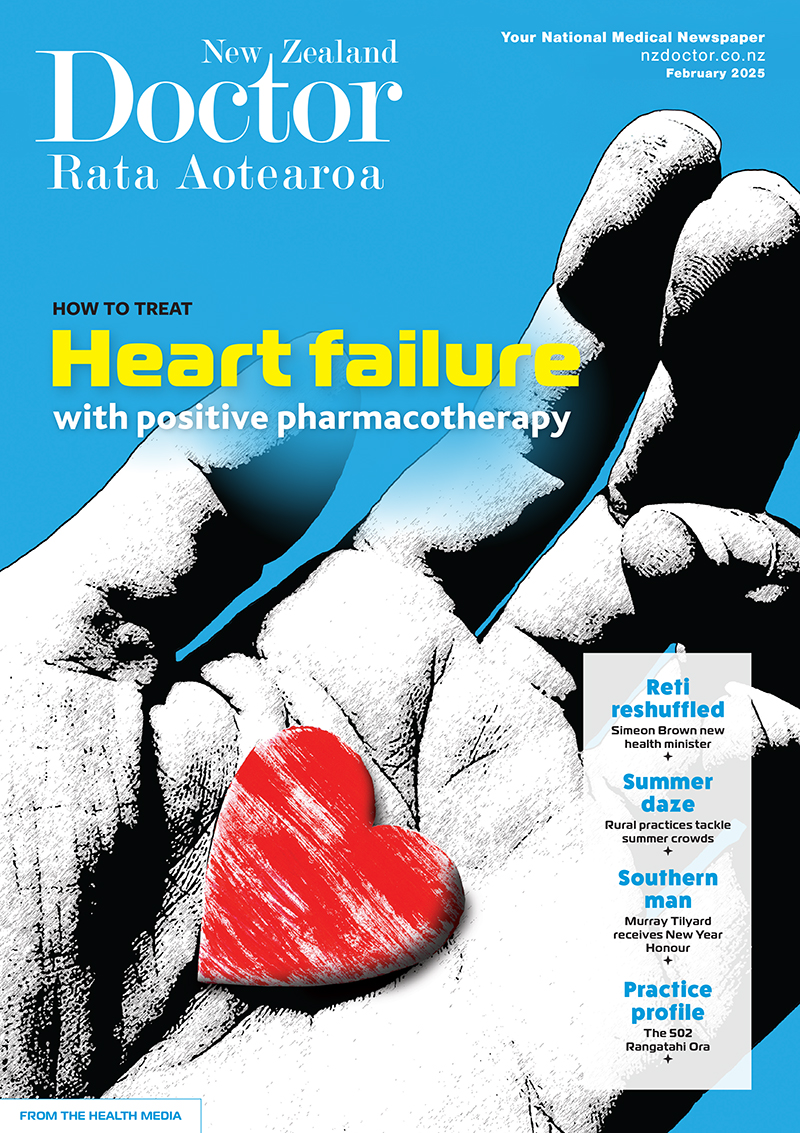Pharmacist prescribers Linda Bryant and Leanne Te Karu discuss positive polypharmacy for heart failure. Current evidence shows the intensive implementation of four medications offers the greatest benefit to most patients with heart failure, with significant reductions in cardiovascular mortality, heart failure hospitalisations and all-cause mortality
Easier access to rare metabolic disorder treatments
Easier access to rare metabolic disorder treatments

Pharmac is making it easier for clinicians to access six treatments for rare metabolic disorders for their patients.
From 1 May 2021 Pharmac will list carglumic acid for use in hospitals and five dietary food supplements specially for inborn errors of metabolism. Until now, funding of these treatments had only been available through the Named Patient Pharmaceutical Assessment (NPPA) funding pathway.
Medicines funded through the NPPA funding pathway require clinicians to apply for, and in some case renew, funding for each patient. Pharmac uses the NPPA process to consider whether to fund a treatment for an individual patient whose clinical circumstances are exceptional.
Pharmac’s director of operations Lisa Williams explains,
“Pharmac is simplifying the application process for these treatments. Rather than applying through the NPPA pathway, clinicians will now be able to easily access them without additional paperwork. It also means patients will be able to start their treatment then and there, rather than waiting for the paperwork to be completed.”
Around 80 people with rare metabolic disorders are expected to use this medicine each year and benefit from this change.
“We appreciate that time is critical in healthcare. We don’t want to waste doctors or patients time on unnecessary paperwork. This change is about making access to medicines for people with rare disorders easier and faster.
“We are always considering new funding solutions for rare disorders medicines. Decisions like this show the success of the Pharmac model – it has enabled us to improve health outcomes for people with rare disorders from within the funding available,” says Lisa.
People with a metabolic disease have an 'inborn error of metabolism', which is a genetic disease caused by a defect in the function of a cellular protein (e.g. an enzyme or transporter) involved in the metabolism of various chemicals in the body or the production of energy for the body.
Metabolic diseases, generally rare, can be complex to diagnose, can affect multiple organ systems, and present at any age in a number of different ways.
The following treatments will be listed on the Pharmaceutical Schedule from 1 May 2021:
- carglumic acid specially to treat patients acutely unwell in hospital with hyperammonaemia due to severe organic acidaemia, rather than being treated with haemofiltration and,
- various dietary food supplements specially to treat people with particular inborn errors of metabolism
- coenzyme Q10 (for inborn errors of metabolism responsive to coenzyme Q10 supplementation)
- levocarnitine (for inborn errors responsive to carnitine supplementation)
- riboflavin (inborn errors responsive to riboflavin supplementation)
- arginine (inborn errors responsive to arginine supplementation)
- taurine (for mitochondrial disorders responsive to taurine supplementation).



